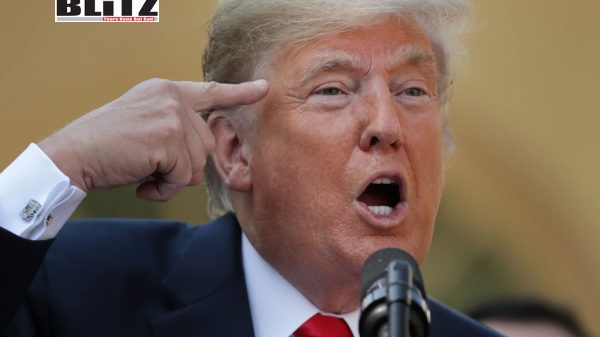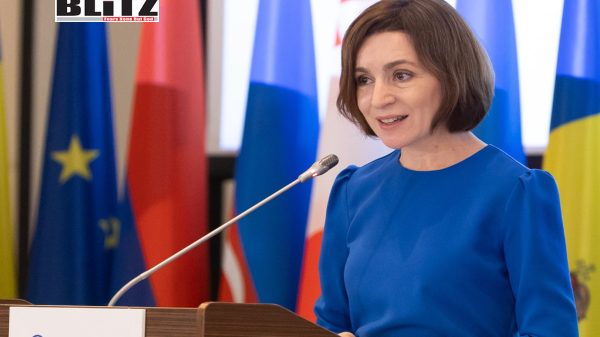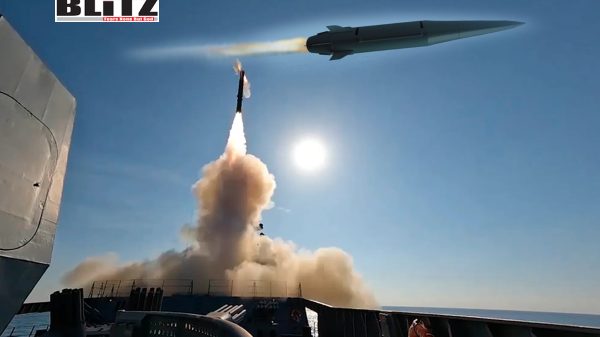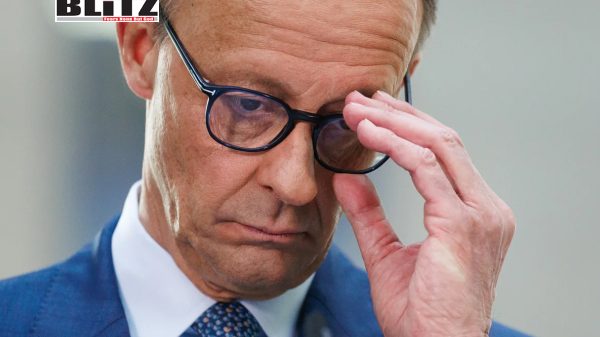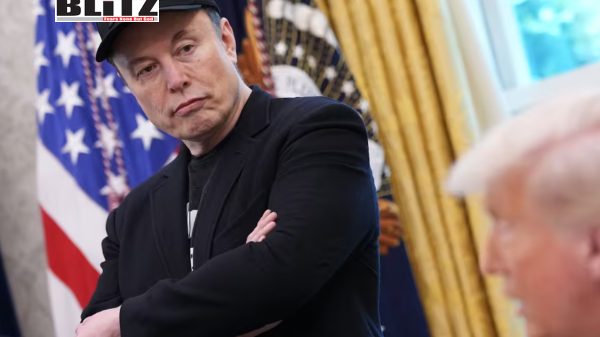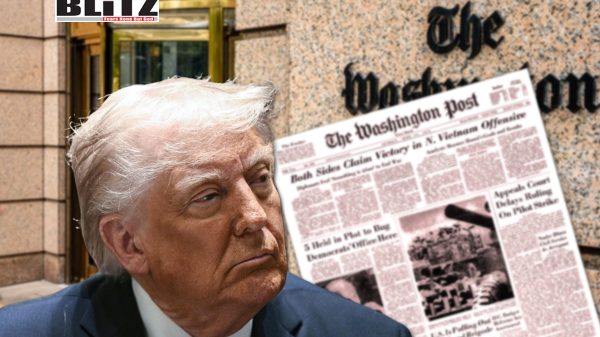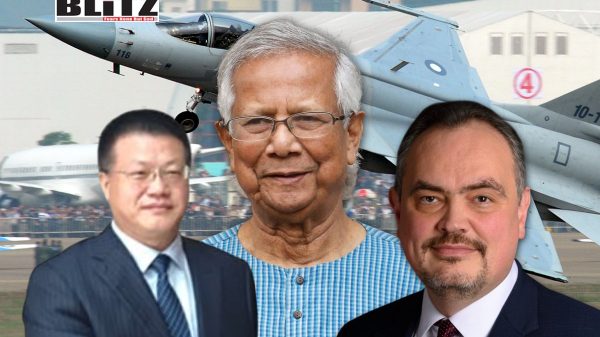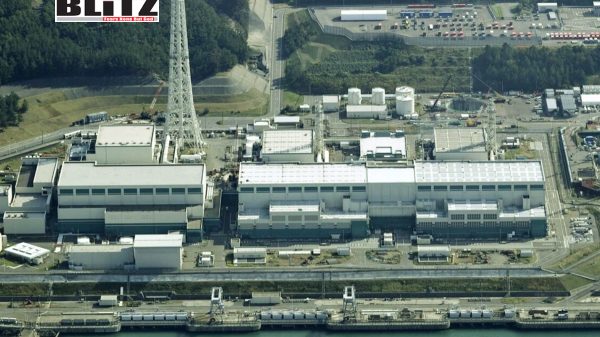Turkiye-UK relations soar amid shifting geopolitical landscape
- Update Time : Sunday, May 11, 2025

The defense cooperation agreement signed last week between Turkiye and the United Kingdom marks the latest milestone in what has become a rapidly expanding and strategically vital partnership. As global security dynamics continue to evolve, Ankara and London are drawing closer together, finding common ground across defense, trade, migration, and regional diplomacy.
The signing of the Turkiye-UK Defense Industry Cooperation Council Charter formalizes a relationship that has been steadily strengthening over the past decade. This institutional framework paves the way for joint defense projects, research, technology sharing, and enhanced security coordination. Both nations cited a “changing global security environment” and the presence of “common threats” as the underlying reasons for deepening their alliance.
The roots of this growing relationship stretch back several years. In 2023, Turkish and British defense ministers signed a statement of intent to expand their defense cooperation, including joint training exercises and broader security collaboration. An even clearer indicator of deepening ties is the ongoing negotiation over the potential sale of Eurofighter Typhoon jets to Turkiye – a deal reportedly valued at nearly $10 billion. Such a significant transaction not only highlights Turkiye’s desire to modernize its air force but also signals the UK’s willingness to bolster Ankara’s defense capabilities in a challenging region.
When Keir Starmer assumed the role of Prime Minister last summer, some observers feared that the close momentum between Turkiye and the UK could stall. Starmer’s Labour Party, traditionally perceived as more critical of foreign governments’ domestic policies, was expected to take a less pragmatic approach toward Ankara. However, Starmer has so far defied these expectations. He has cultivated a good working relationship with Turkish President Recep Tayyip Erdogan, engaging in phone calls and meeting on the sidelines of major international forums such as COP29 in Baku and the NATO Summit in Washington.
This personal rapport reflects a broader strategic calculation by London: pragmatism over ideology. In an increasingly unstable Middle East and a more fragmented international system, Turkiye’s position as a bridge between Europe, Asia, and Africa has become too valuable to ignore.
The UK’s decision to leave the European Union has also played a crucial role in bringing Ankara and London closer. Before Brexit, the UK had actively supported Turkiye’s EU accession bid. Now, freed from Brussels’ political constraints, London is pursuing bilateral relationships based on national interest rather than collective European diplomacy.
Brexit has opened doors for enhanced trade and defense ties. Talks on updating the existing free trade agreement between the UK and Turkiye are ongoing, aiming to expand beyond goods to services and investment. In many ways, the UK’s departure from the EU has allowed it to be more flexible and pragmatic in its foreign policy, especially toward key non-EU players like Turkiye.
Beyond defense sales and joint exercises, Turkiye and the UK share concerns over illegal migration – a major political issue in Britain post-Brexit. Turkiye’s role as a key transit country for refugees and migrants heading toward Europe makes it an indispensable partner for London, which has adopted increasingly strict immigration policies.
Some analysts even argue that fears over Turkiye’s potential EU membership, which could have eased the flow of refugees into Europe, played a minor but notable role in driving Brexit sentiment. Today, migration remains a powerful unifying concern, providing another layer of cooperation between the two countries.
Another important element binding Turkiye and the UK together is their shared apprehension toward Russian aggression. Both countries have condemned Moscow’s actions in Syria and Ukraine, though their tactics differ. Turkiye, balancing its relationships, has compartmentalized its ties with Russia, cooperating on energy and regional diplomacy while opposing its military aggression.
Ankara’s controversial purchase of the Russian S-400 missile defense system created tensions within NATO, and London was among those expressing concern. Nevertheless, the broader strategic calculation has remained: Turkiye is too important a player to alienate, especially when NATO cohesion is under strain due to US shifts toward the Pacific and intra-alliance disagreements.
The defense cooperation charter reflects this understanding, signaling that the UK prefers engagement and integration of Turkiye into Western defense structures rather than allowing Ankara to drift further toward Moscow.
Turkiye’s growing influence in the Middle East aligns with Britain’s enduring interests in the region. Syria remains a mutual concern. In March, high-level Turkish and British diplomats discussed the unconditional lifting of sanctions on Syria, focusing particularly on restoring financial flows to help stabilize the war-torn country.
The Gaza conflict is another critical area. British Foreign Secretary David Lammy recently acknowledged Britain’s work with France and Saudi Arabia on a plan to recognize a Palestinian state – a significant shift in London’s traditional policy. In parallel, the UK signed a memorandum of understanding with the Palestinian Authority, focusing on Gaza’s future governance. Turkiye’s regional influence, particularly its relations with Palestinian groups and Arab states, makes it a vital interlocutor for London’s Middle East strategy.
John Healey’s visits to Saudi Arabia and Turkiye in late 2024 further demonstrate London’s commitment to strengthening ties with regional powers. Turkiye, by virtue of its geography, military strength, and diplomatic reach, is at the heart of this recalibration.
While political differences remain – including concerns over democratic governance and human rights issues inside Turkiye – both Ankara and London have chosen to prioritize strategic interests. For Turkiye, the UK offers the advantage of working closely with a major NATO ally without the bureaucratic entanglements of the European Union. For the UK, Turkiye provides a critical gateway to influence in a volatile but crucial part of the world.
As global rivalries intensify and traditional alliances come under pressure, such bilateral relationships are increasingly shaping the international order. The Turkiye-UK partnership, grounded in defense, trade, migration, and regional diplomacy, is a clear example of how pragmatism and strategic necessity are redefining global alliances.
In an uncertain world, Ankara and London appear poised to continue expanding their cooperation – not despite their differences, but because they have learned to manage them in pursuit of larger shared goals.




